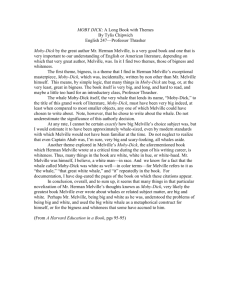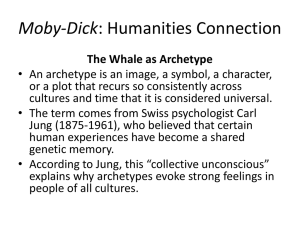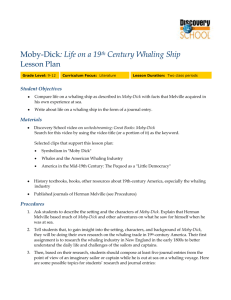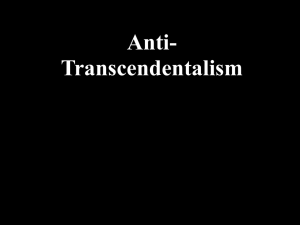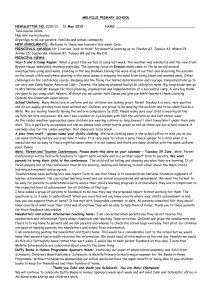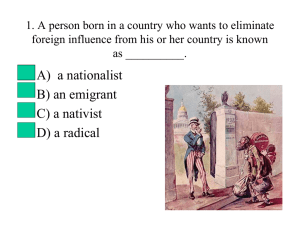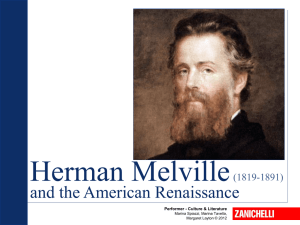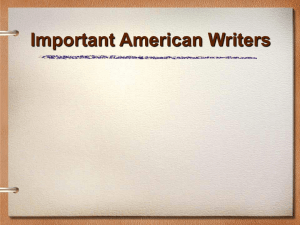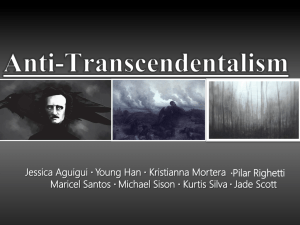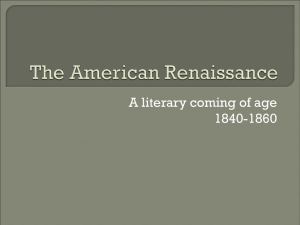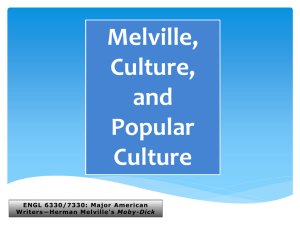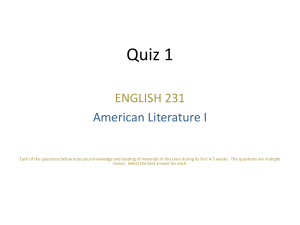ENG 880, Seminar: Melville`s Moby-Dick Glen Johnson The Catholic
advertisement
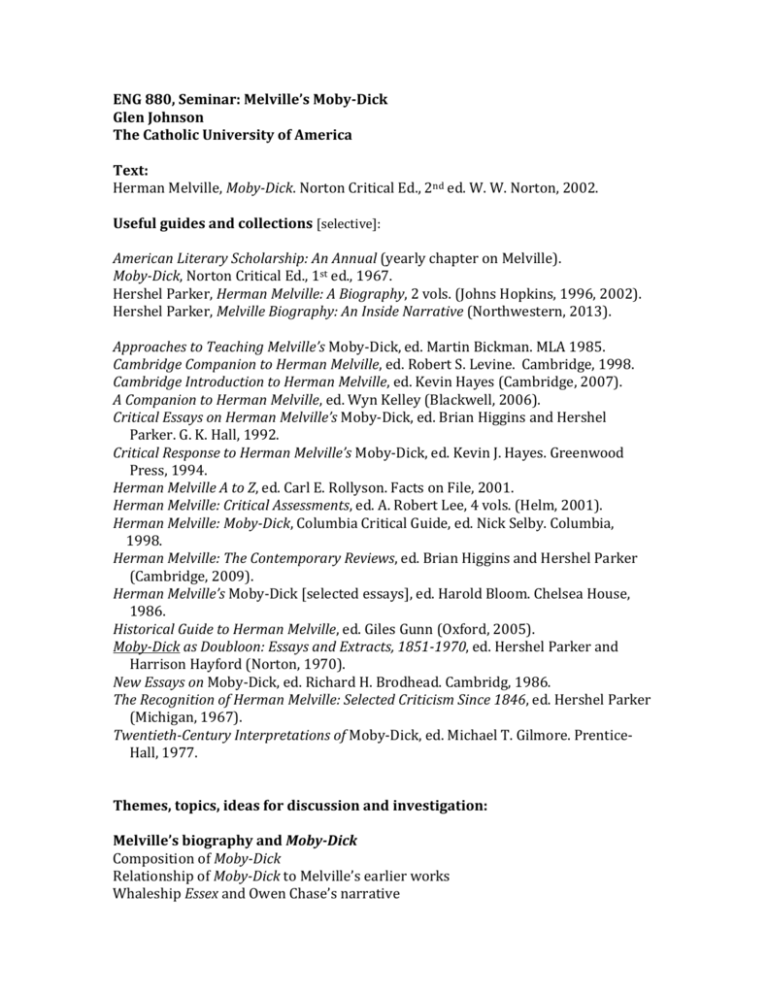
ENG 880, Seminar: Melville’s Moby-Dick Glen Johnson The Catholic University of America Text: Herman Melville, Moby-Dick. Norton Critical Ed., 2nd ed. W. W. Norton, 2002. Useful guides and collections [selective]: American Literary Scholarship: An Annual (yearly chapter on Melville). Moby-Dick, Norton Critical Ed., 1st ed., 1967. Hershel Parker, Herman Melville: A Biography, 2 vols. (Johns Hopkins, 1996, 2002). Hershel Parker, Melville Biography: An Inside Narrative (Northwestern, 2013). Approaches to Teaching Melville’s Moby-Dick, ed. Martin Bickman. MLA 1985. Cambridge Companion to Herman Melville, ed. Robert S. Levine. Cambridge, 1998. Cambridge Introduction to Herman Melville, ed. Kevin Hayes (Cambridge, 2007). A Companion to Herman Melville, ed. Wyn Kelley (Blackwell, 2006). Critical Essays on Herman Melville’s Moby-Dick, ed. Brian Higgins and Hershel Parker. G. K. Hall, 1992. Critical Response to Herman Melville’s Moby-Dick, ed. Kevin J. Hayes. Greenwood Press, 1994. Herman Melville A to Z, ed. Carl E. Rollyson. Facts on File, 2001. Herman Melville: Critical Assessments, ed. A. Robert Lee, 4 vols. (Helm, 2001). Herman Melville: Moby-Dick, Columbia Critical Guide, ed. Nick Selby. Columbia, 1998. Herman Melville: The Contemporary Reviews, ed. Brian Higgins and Hershel Parker (Cambridge, 2009). Herman Melville’s Moby-Dick [selected essays], ed. Harold Bloom. Chelsea House, 1986. Historical Guide to Herman Melville, ed. Giles Gunn (Oxford, 2005). Moby-Dick as Doubloon: Essays and Extracts, 1851-1970, ed. Hershel Parker and Harrison Hayford (Norton, 1970). New Essays on Moby-Dick, ed. Richard H. Brodhead. Cambridg, 1986. The Recognition of Herman Melville: Selected Criticism Since 1846, ed. Hershel Parker (Michigan, 1967). Twentieth-Century Interpretations of Moby-Dick, ed. Michael T. Gilmore. PrenticeHall, 1977. Themes, topics, ideas for discussion and investigation: Melville’s biography and Moby-Dick Composition of Moby-Dick Relationship of Moby-Dick to Melville’s earlier works Whaleship Essex and Owen Chase’s narrative Critical reception of Moby-Dick Moby-Dick and the canon Matthiessen’s American Renaissance, the Cold War, and canonization Genre and Moby-Dick Romance, anatomy, epic Cetology and narrative Style and diction Melville and contemporaries: Hawthorne Emerson Publishers, editors, etc. Literary and other influences: Shakespeare The Bible Milton Goethe Robert Burton, Dante, Montaigne, Carlyle, Mary Shelley Romanticism, the Romantic era & romantic themes Nature Transcendentalism Individualism Reform Philosophical-Religious issues: Gnosticism Platonism Calvinism Manichaeism Pantheism Quakerism Political culture of mid-19th century America Democracy Slavery Race Reform Industrialization in America Science and pseudo-science: phrenology, hieroglyphics, etc. Theoretical approaches to Moby-Dick Myth and archetype Formalism Semiotic Post-structuralism and deconstruction New Historicism Sociological Feminist Queer, Gay studies, masculinity studies Ecological Phenomenology Psychological and psychoanalytical Reader-response and reception theory Speech-act and linguistic theories Approaches to teaching Moby-Dick Classroom approaches Critical guides to Moby-Dick Moby-Dick in the arts, etc. Fictional works related to and influenced by Melville Visual art and Moby-Dick Film and dramatic versions Performing versions Audio versions
